Chess is a timeless game of strategy and intellect that has captivated players for centuries. Whether you're a complete beginner or someone looking to refresh your knowledge, this comprehensive guide from Toy Kingdom will provide you with the necessary information to start playing and enjoying the game of chess. We’ll help you develop a solid foundation and instill confidence in your chess abilities.
A Brief Journey Through Chess History
To truly appreciate the game of chess, it is essential to delve into its captivating history. Chess originated over a millennium ago, tracing its roots back to ancient India and Persia. Over time, it spread across continents, captivating the minds of people from various cultures and civilizations.
The objective of this game is simple: outsmart your opponent's king and place it in a state of checkmate, resulting the victory. This concept, where the king is under attack and cannot escape capture, has symbolized the triumph of intellect and the power of foresight for centuries.
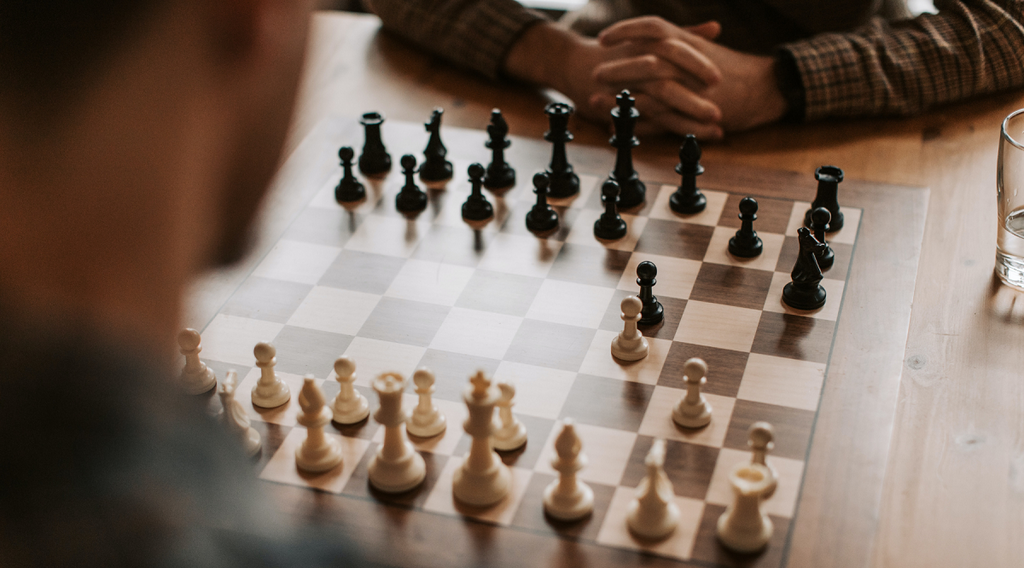
Benefits of Playing Chess for Beginners
Playing chess offers a range of benefits that go beyond simply having fun. If you have no idea how to play the game of chess, here are some key benefits of playing chess for beginners:
-
Critical thinking skills
Chess is like a mental workout. It challenges you to think critically, analyze situations, and make strategic decisions. Playing chess can sharpen your problem-solving skills, enhance your logical reasoning, and develop your ability to think ahead.
-
Concentration and focus
Chess demands your full attention. When you play, you learn to concentrate and focus on the board, evaluating the different moves of each chess piece and potential outcomes. This skill transfers to other areas of life, helping you improve your ability to concentrate and stay focused on tasks.
-
Patience and perseverance
Chess is a game of endurance where you need to plan and execute your moves patiently, even when faced with challenges. Through this game, you learn to embrace setbacks, adapt your strategies, and keep pushing forward.
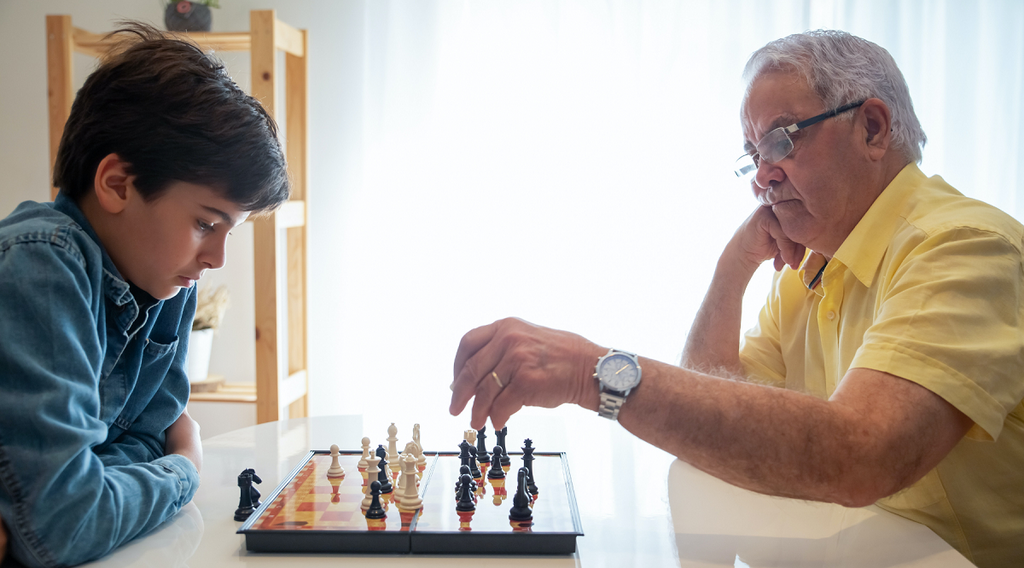
-
Memory enhancement
Chess involves remembering moves, patterns, and strategies. Playing chess regularly helps exercise your memory and improve your ability to recall information. This skill can benefit you in various areas of life, from academic pursuits to professional endeavors.
-
Improved decision-making
Chess forces you to make decisions under pressure. Evaluating different possibilities and their consequences guides you to develop better decision-making skills. This ability to analyze situations and make sound judgments carries over into other aspects of life, enabling you to make informed choices.
-
Sportsmanship and emotional intelligence
Chess teaches sportsmanship and emotional intelligence. You learn to handle both victory and defeat graciously. Through chess, you develop resilience, learn to control your emotions, and appreciate the value of fair play and respect for your opponent.
-
Social interaction
Chess is a game enjoyed with other players. Whether you join chess clubs or play with friends and family, it provides an opportunity for social interaction, fostering connections, and building relationships with fellow chess enthusiasts.
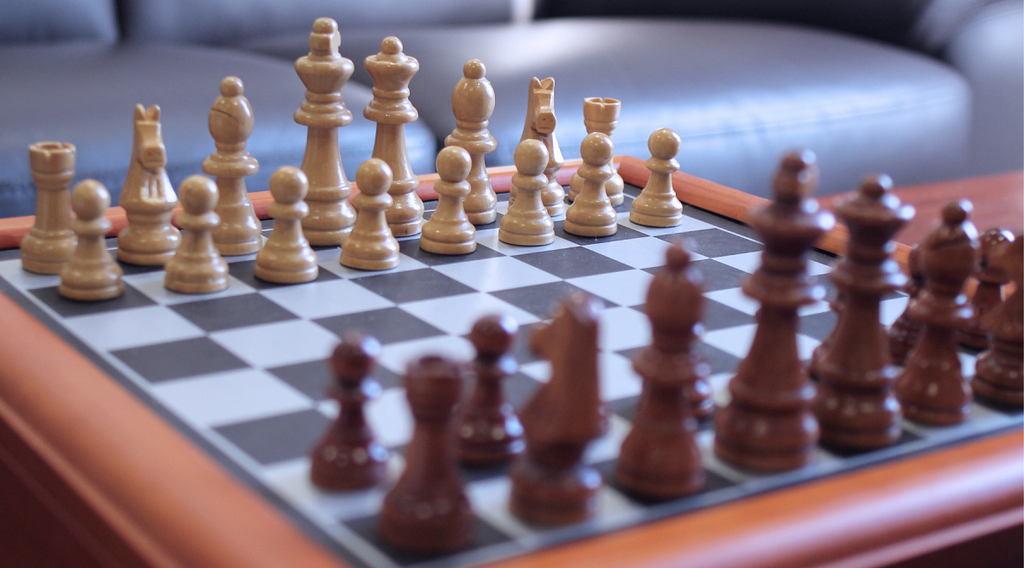
Setting Up the Chessboard
Before you start playing chess, it's important to know how to set up the chessboard correctly. Follow these simple steps for proper chessboard setup:
- The first thing you need to know is the layout of the chessboard. It consists of 64 squares in an 8x8 grid.
- Place the chessboard between you and your opponent with the bottom-right square as a light-colored square (white square).
- When placing the chess pieces, start with the rooks in the corners followed by the knights next to the rooks. Then, place the bishops next to the knights. Put the queen on the remaining square of her color—white queen on a white square and black queen on a black square. Finally, place the king next to the queen.
- Fill the row in front of the major pieces with eight pawns for each player.
- Remember to alternate light and dark squares for a visually pleasing board.
Now that you have set up the chessboard, you're ready to explore the exciting world of chess and showcase your strategic brilliance!

Understanding Chess Pieces and Their Movements
In the game of chess, each piece holds its importance and contributes to the dynamic nature of the game.
- The King is the most important piece. It moves one square in any direction and must be protected at all costs.
- The Queen is the most powerful piece. It can move in any direction—horizontally, vertically, or diagonally, making it a versatile force on the board.
- The Rook moves horizontally or vertically across the board, covering long distances. Rooks excel at controlling open files and supporting each other.
- Knights move in an "L" shape—two squares in one direction and then one square vertical to it. They can jump over other pieces, making them great for surprises and capturing opponents.
- Bishops move diagonally, covering any number of squares. Bishops control long diagonal lines, aiding defense and offense while placed on different-colored squares.
- Pawns are the smallest pieces and the most numerous. They move forward one square, with the option to move two squares on their first move. Pawns capture diagonally and can promote to any piece if they reach the opposite end.
Each piece has its own strengths and strategic importance. Mastering their movements and interactions will give you an edge in the intricate game of chess.
Capturing and Special Moves
Capturing your opponent’s pieces plays a crucial role in the game of chess, adding excitement and complexity to each move. Understanding the rules and techniques of capturing, as well as the concept of promotion and special moves, will elevate your gameplay to new heights. Let's explore these essential aspects of chess.
How to capture your opponent's pieces
Capturing in chess involves moving one of your pieces to a square occupied by an opponent's piece, and removing it from the board. Each piece has its unique way of capturing. For instance, the pawn captures diagonally, while the knight captures by jumping over other pieces in an L-shape movement.
When capturing, it's important to consider the value of the captured piece and the potential consequences of the exchange. Sometimes sacrificing a less valuable piece to capture a more powerful one can provide strategic advantages in the long run.

Promotion
Players can promote their pawn when it reached the opposite end of the board. This means the pawn can be exchanged for a more powerful piece of their choosing: a queen, rook, bishop, or knight. The “promotion” offers an exciting opportunity to transform a humble pawn into a formidable force, dramatically altering the dynamics of the game.
Special moves you need to know
- Castling is a unique and powerful move that involves the king and one of the rooks. It allows the king to move two squares toward a rook, while the rook jumps over the king and lands on the square next to it. Castling serves multiple purposes: it helps safeguard the king by moving it to a safer position, and it connects the rooks, enabling their coordination in the later stages of the game.
- En Passant is a tactical move that applies specifically to pawns. When an opponent moves their pawn two squares forward from its starting position and lands beside your pawn, you have the opportunity to capture it as if it had only moved one square forward. This trick takes advantage of the opponent's vulnerable position and can lead to surprising turnarounds in the game.

Chessboard Games at Toy Kingdom
Your journey to learning the game won’t be complete without the right chessboard. Good thing, Toy Kingdom offers a wide range of chess board games to enhance your playing experience. Whether you’re a professional chess player or a beginner, we have a wide variety of chess board games to check out:
|
Classic Chess Game
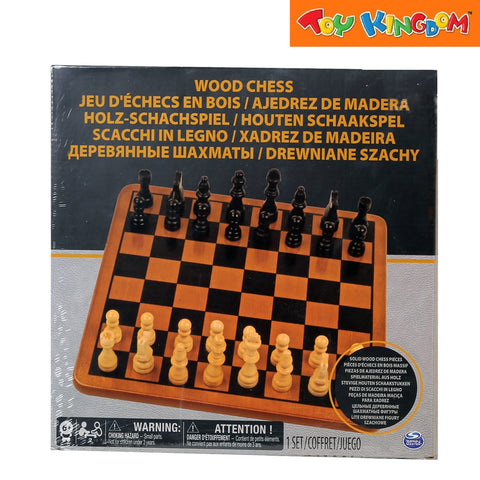 |
Modern Chess Game
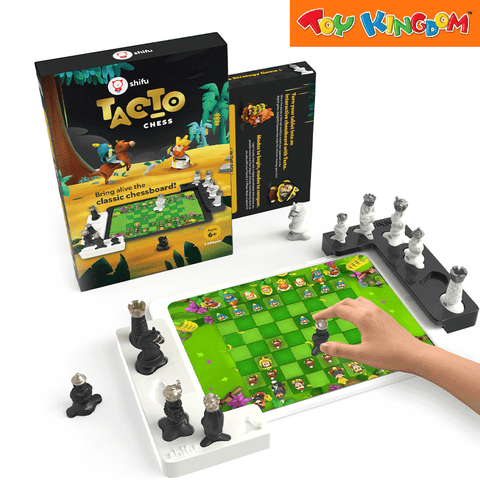 |
Beginner Friendly Chess
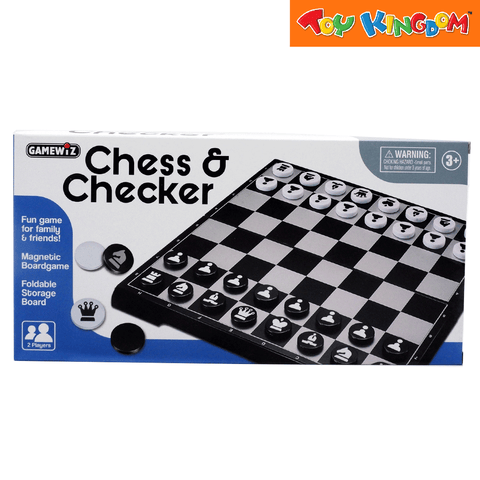 |
Aside from chess, we also carry a selection of other indoor board games that will keep you, your friends, and your family entertained. Take a look at our Scrabble board game or the ever-popular Monopoly board game!
Board games like chess combine intellect, strategy, and creativity, offering endless possibilities and challenges. By following this comprehensive beginner's guide, you will gain knowledge and confidence on how to play chess and explore its fascinating world. Buy a chess board from Toy Kingdom stores and online, set it up, and let the journey to mastery begin!













